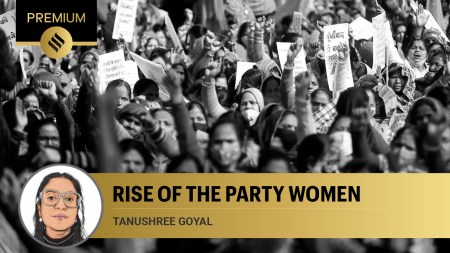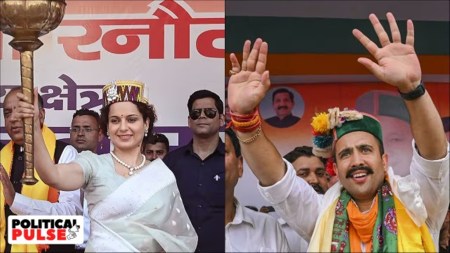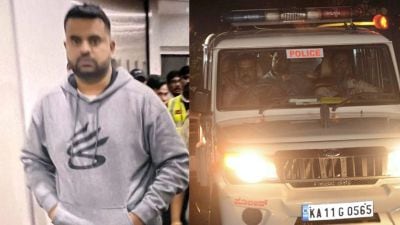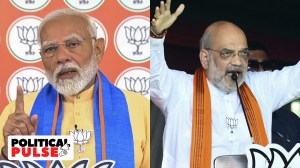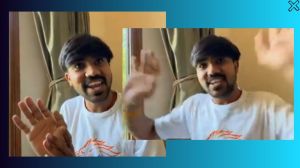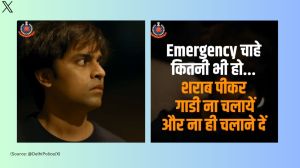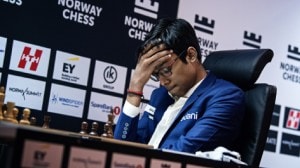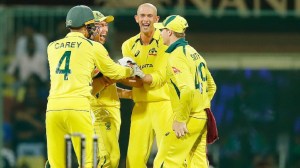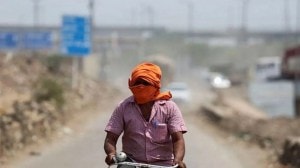- India
- International
Udham Singh: The witness to Jallianwala Bagh who swore to bring an end to British rule
Udham Singh, a witness to the Jallianwala Bagh massacre, was so horrified by the atrocities of British rule that he dedicated his life to bringing independence to India
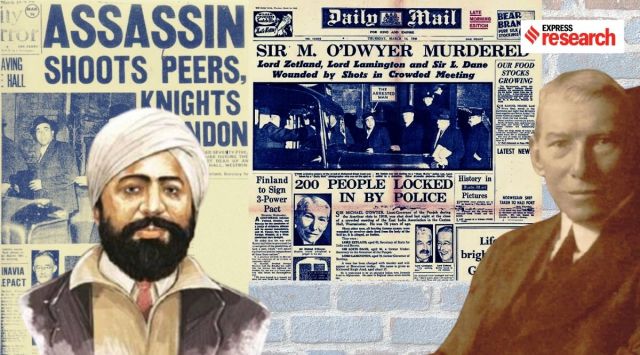 Udham Singh, the man who assassinated Micheal O'Dwyer
Udham Singh, the man who assassinated Micheal O'DwyerOn June 5, 1940 as the jury at the Central Criminal Court in Old Bailey found Udham Singh guilty of murdering General Michael O’Dwyer, the clerk turned around to Singh and asked if he had anything to say as to why the court should not give him the penalty of death according to the law. Singh responded saying that he had a statement to make. Adjusting his glasses, he produced a set of papers and began reading. “I say down with British imperialism,” he said. “You say India does not have peace. We have only slavery. Generations of so-called civilisation has brought for us everything filthy and degeneration known to the human race. All you have to do is read your own history.”
Udham Singh was 40 at that time. Having grown up in the early decades of the 20th century, he was heavily influenced by political events in Punjab such as the Komagata Maru incident of 1914 and the Ghadar Party’s uprising of 1914-16. He was a young boy of 20 when he witnessed General Dyer’s madness at Jallianwala Bagh as he fired upon a group of innocent, unarmed people. He was serving water to the people who had turned up for the procession that day on the event of Baisakhi and was himself injured. Undeterred, he had continued serving people till late in the night.
The Jallianwala Bagh massacre was a turning point in his life, and he resolved to take revenge. Two decades later, he fulfilled his promise as he shot Michael O’ Dwyer at a meeting in Caxton Hall, London. O’Dwyer was the lieutenant governor of Punjab when the Jallianwala Bagh incident had happened. On being shot, he dropped dead instantly.
The assassination of Dwyer shook up both the British authorities and the nationalists in India. The news spread like wildfire throughout the world. “Perhaps no other incident in the world gained so much publicity as this one on 14th March 1940. From morning to midnight news had been broadcast in French, Spanish, Italian, English, Turkish, Rumanian and Russian,” writes historian Sikander Singh in his book ‘A great patriot and martyr Udham Singh’ (2007). Yet for all the noise he made, Singh was quick to disappear from public consciousness and lay largely forgotten in the pantheon of freedom fighters.
After the conclusion of his trial, the judge, Justice Atkinson, turned to the press and ordered, “I give a direction to the press not to report any of the statements made by the accused in the dock. You understand, members of the press?”

Two weeks later Udham Singh was hanged at Pentonville prison and for the next several decades his final statement in the court and several other facts about his life lay buried amidst secret documents accessible only to government authorities. Interestingly, even nationalist leaders in India, including Mahatma Gandhi and Jawaharlal Nehru, were largely critical of his action. And as recent works by scholars on Singh’s life shows, the government of independent India too had for a long time made it rather difficult to access documents related to him.
The early life of Udham Singh
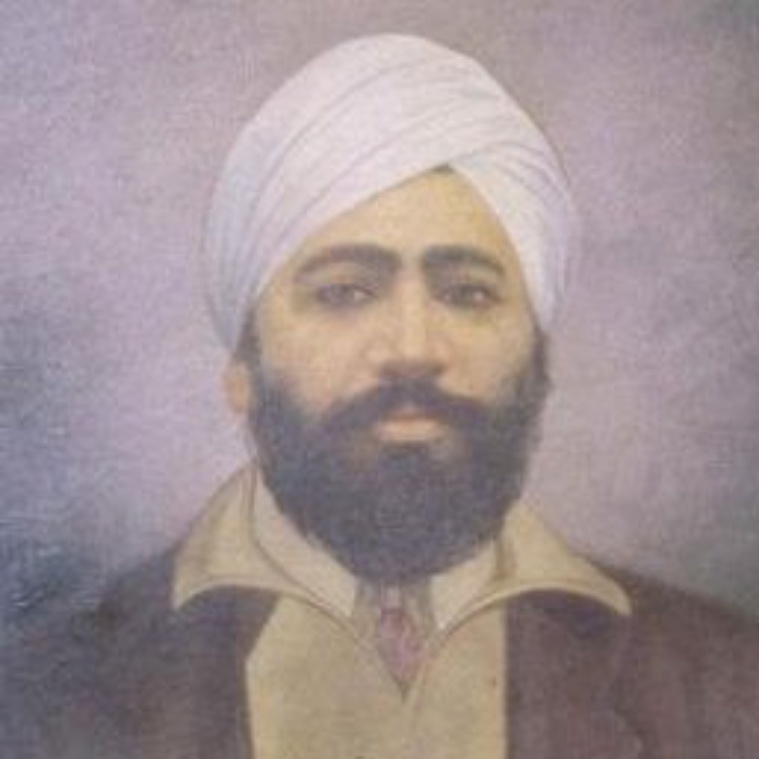 Udham Singh (Express file photo)
Udham Singh (Express file photo)
Udham Singh was originally named Sher Singh after his birth in 1899 at Sunam in Sangrur district of Punjab. He lost both his parents at a fairly young age and he along with his brother spent most of their childhood at an orphanage. It is at the orphanage that he and his elder brother were baptised into Sikhism and given the name Udham Singh. Throughout his childhood and adolescence years, he was deeply influenced by the teachings of Sikhism.
Tales of Udham Singh’s courage continue to be narrated in his village. A famous incident is one about him fighting a leopard that had barged into his house to attack the goats.
There is a lack of clarity about Singh’s education though. Historian Navtej Singh in his biography of Udham Singh suggests that one British record states that he was educated in Amritsar’s Khalsa College. However, Udham Singh himself is known to have said that he received no education. While some records suggest him to be an electrician, there are others that have documented him as being an engineer. “But it is certain that he could write in Urdu and English fluently; also could write fairly well in Gurmukhi. He could speak English fluently when at ease,” writes Navtej Singh.
On April 13, 1919, on the festive occasion of Baisakhi, a large group of people assembled in Jallianwala Bagh at Amritsar to protest against the arrest of a few Congress leaders under the Rowlatt Act. Udham Singh along with his mates from the orphanage were there to distribute water among the attendees. As Dwyer fired upon the group, all his other friends from the orphanage died. The sight of his friends dying and the allround carnage had a lasting impact on the 20-year-old.
After the incident at Jallianwala Bagh, Udham Singh was filled with hatred for the British government in India. As Sikander Singh notes in his book, “when he talked of General Dyer and his actions, his eyes became bloodshot with rage.” He was a dedicated revolutionary now, determined to bring an end to the British Raj.
Deeply influenced by the activities of Bhagat Singh, he got involved in the Ghadar Party in 1924. For the next few years he travelled abroad and organised Indian revolutionaries overseas to overthrow colonial rule. After he returned to India in 1927 with a supply of ammunition on the orders of Bhagat Singh, he was arrested and sentenced to five years in prison. Upon his release in 1931, although he was under constant surveillance of the Punjab Police, he managed to escape to Germany and from there to London in 1934 where he worked as an engineer. All this while, Udham Singh was making plans to assassinate O’Dwyer. Reports suggest that in his personal diary he frequently referred to O’Dwyer as Dyer, possibly because he confused the two.
The assassination of General Dwyer
In 1939, as the Second World War started out, he saw in the crisis an opportunity to overthrow the Raj. He was filled with a desire to emulate the heroes of the 1914-16 Punjab rebellion and mark himself out as a national hero.
Sikander Singh in his book records that on March 12, 1940, a day before the assassination, Udham Singh had invited his friends over for a traditional Punjabi meal. He seemed jubilant and high-spirited that day, and when his friends were about to leave, he announced valiantly that the next day “London would witness a marvel” and that the British Empire would be shaken to its foundations.
Reportedly, a few days before this party Udham Singh had been to the India Office where he saw a poster announcing a joint meeting of the East India Association and the Royal Central Asian Society. The Royal Central Asian Society was an independent body formed in 1901 to promote a greater understanding of Central Asia and the surrounding regions. Over the years, it had come to cover the entire region of Asia and by 1940 was regularly meeting for fortnightly meetings in the Tudor Room at Caxton Hall. O’Dwyer was listed as one of the speakers for the meeting on March 13. When Udham Singh saw the poster, he made up his mind to attend it and stage a protest with revolver shots.
The meeting started at 3 PM and was attended by about 450 people. As the meeting ended, Udham Singh emerged from among the crowd, pulled out a revolver from his jacket pocket and fired six shots in rapid succession within five seconds. One of the shots hit O’Dwyer, who fell back soaked in blood and died soon after.
At this point no one knew who Udham Singh was. Most assumed the incident to be an IRA bomb attack. When the police arrived they searched for the Indian with the revolver who gave his name as Mohammed Singh Azad. He was then removed to another room where he was kept in the custody of Detective Sergeant Sidney Jones.
On being interrogated, Udham Singh, who was then known as Azad, said, “I did it because I had a grudge against him. He deserved it.” On being informed that he might be sentenced to death for the crime he shouted out, “I don’t care about the sentence of death. It is not worrying me. I am dying for a purpose.”
Reaction to the assassination
The BBC’s 9 pm news was the first to break the information about O’Dwyer’s assassination. Even as British bureaucrats were gripped with fear after the incident, there was much rejoicing in India. In Punjab, the incident was seen as heroic, an avenge for the insult at Jallianwala Bagh.
The following day, a German radio station reported the incident, along with stating “the Indian freedom movement has now gone over to direct action against the English oppressors of India.” “The shooting and killing of Sir Michael O’Dwyer recalls the past misdeeds of the British administrators in India.”
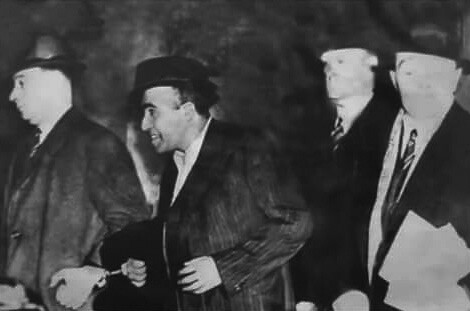 Udham Singh at trial (Wikimedia commons)
Udham Singh at trial (Wikimedia commons)Newspapers of the day too carried extensive coverage of the incident and each one of them recounted the story of Jallianwala Bagh. The Daily Mirror, as cited in Sikander Singh’s book, reported, “Revenge after 20 years….Amritsar had never forgotten.”
Interestingly, the press in India was deeply mournful about the event. In the collection of documents related to Udham Singh edited by Navtej Singh and Avtar Singh Jouhl in 2002, the National Herald is cited as suggesting that the “assassination is widely regretted but earnestly hopes that it will not have far-reaching repercussions on the political future of India.” The paper that was established by Nehru further stated, “We have not been unaware of (two corrupt groups) of the feeling, particularly among younger section of Indians, regarding non-violence as an instrument of national policy and our support of early civil disobedience is because of our conviction that delay will strengthen the forces of violence.”
The Statesman, reporting on March 16, 1940, noted, “The senseless character of the crime is illustrated by the fact that the chief victim was a man of 76 years of age who retired from India nearly twenty years ago, while the occasion was a harmless gathering.”
The Tribune on the same day noted, “Anything more shocking than the outrage that took place at a meeting of the India Association in London on Wednesday night cannot be easily imagined.” It added: “Profoundly as all sections of public opinion in India will deplore the incident, no section of opinion will condemn it more strongly, more energetically or more unreservedly than the party of self-government between whom and the chief victim of the outrage there was little love lost during the period of his administration in the country.”
Flags flew at half-mast both at London and Lahore on the day following the incident and all public offices and courts were closed. In the House of Commons, the leader of the Labour Party, Clement Atlee, asked Prime Minister Neville Chamberlain: “Is it not the fact that this abominable outrage will be as keenly resented by all the people of India as by the people of this country?” The latter responded, “I am sure that that is so.”
Gandhi, on hearing of the incident, told reporters, “The news of the death of Michael O’Dwyer and the injuries to Lord Zetland, Lord Lamington and Sir Louis Dane, has caused me deep pain. I regard this act as one of insanity.” He went on to express the hope that it would not affect Indian politics and expressed his condolences with O’Dwyer’s family.
“Gandhi, whose pacifist soul was shaken to its core by the assassination of this imperialist butcher, was not to express such sympathy for the family and friends of Udham Singh after the latter’s execution in Pentoville prison,” writes the politician and editor of Lalkar newspaper Harpal Brar in his foreword to Navtej Singh’s biography of Udham Singh.
The trial of Udham Singh
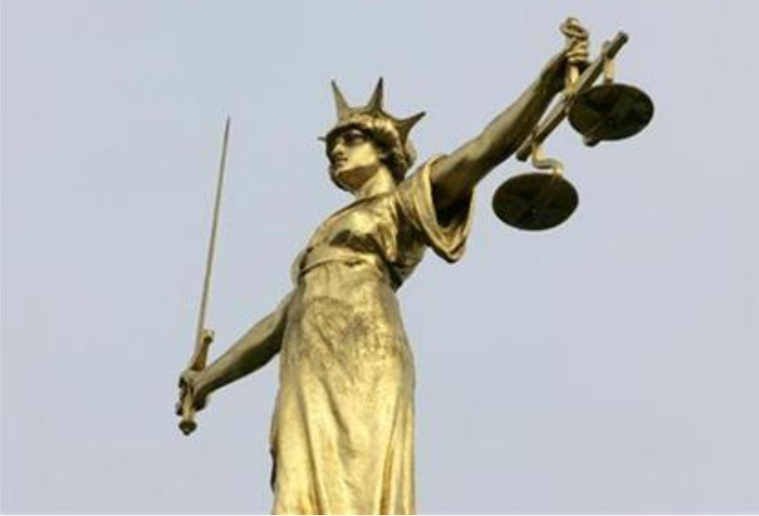 A statue representing the scales of justice is seen on the roof of the Old Bailey courts in central London (Reuters)
A statue representing the scales of justice is seen on the roof of the Old Bailey courts in central London (Reuters)
In the days following the assassination, the police investigated thoroughly to find out who Udham Singh, alias Azad, was. New Scotland Yard reported, as cited in Navtej Singh’s book, “that Singh’s action was not sponsored by any organisation or association and that no other person was party to the scheme. He has given evidence of terrorist aspirations from his early days, and there is no doubt that he has for some time in the past nursed a plan to assassinate some prominent Englishman connected with Indian political affairs.”
The police were fearful that Udham Singh might use the trial in court for political purposes, posing as a martyr and encouraging Indians both in India and abroad to commit similar crimes. Consequently, it was decided to limit media publicity of the investigation and trial as much as possible.
The trial started out on June 4, 1940 in the Number 1 court of Old Bailey, the Central Criminal Court. “Special precautions were taken in London to ensure that the press did not give ‘undue prominence’ to Udham Singh’s ‘heroics’,” notes Navtej Singh in his book.
The presiding judge was Mr. Atkinson. The prosecution was represented by G B McLure and C.Humphreys and Udham Singh was defended by John Hutchinson, R E Seaton and V K Krishna Menon. Navtej Singh writes that Udham Singh declined to be sworn on the Bible but made a solemn affirmation.
McLure opened the case on behalf of the prosecution. Udham Singh’s lawyers presented their defence by producing a piece of paper written by O’Dwyer to establish that they both were on friendly terms. Udham Singh was then invited to the witness box. He stated that he was against British rule in India and the way India had been forced into the war. He further explained that his original intention was to shoot into the air and shout, ‘leave India alone, mind your own business.’ However, since someone pushed him and struck his arm down, the bullet happened to hit O’Dwyer.
The following day of the trial Udham Singh repeated that he had no desire to kill anybody. But in the course of the proceeding he slowly admitted everything he had previously told to the police.
After the prosecution presented the case, Atkinson summed up by arguing that it was not necessary to prove intent of murder but that the damage was an intentional act. It was not accidental and that Udham Singh had gone to the meeting fully armed.
The jury found Udham Singh guilty of murder and then the court clerk asked him if he had anything to say with regard to why he must not be given a death penalty. It is then that Udham Singh started out his famous speech against British imperialism. He was swiftly interrupted by Atkinson who said he was not going to listen to a political speech.
After much argument between the two, Atkinson stated once again, “You are only entitled to say why the sentence of death should not be passed upon you. You are not entitled to make a political speech.”
To this Udham Singh shouted, “I do not care about the sentence of death. It means nothing at all. I do not care about dying or anything. We are suffering from the British Empire… I am standing before an English jury in an English court. You people go to India and when you come back you are given prizes and put into the House of Commons, but when we come to England we are put to death.”
Udham Singh went on that when the British come to India they call themselves “intellectuals” and “rulers” and “they order machine guns to fire on Indian students without hesitation.” “I have nothing against the public at all. I have more English friends in England than I have in India. I have nothing against the public. I have great sympathy with the workers of England, but I am against the dirty British government,” he said, as quoted in Navtej Singh’s book.
Atkinson interrupted the speech saying, “I am not to hear any more…I am going to pass sentence upon you.” Once the sentence of death was proclaimed, Udham Singh clenched his fist in the air and shouted, “Inqlab, Inqlab, Inqlab…down with British imperialism”.
Soon after, he was handcuffed and taken to Pentoville prison in North London where he was hanged to death on July 31, 1940.
Further reading:
Navtej Singh, Challenge to imperial hegemony: The life story of a great Indian patriot Udham Singh, Punjabi University, 1998
Sikander Singh, A great patriot and martyr Udham Singh, Unistar Books, 2014
Navtej Singh and Avtar Singh Jouhl, Emergence of the image: Redact documents of Udham Singh, National Book Organisation, 2002
May 31: Latest News
- 01
- 02
- 03
- 04
- 05




